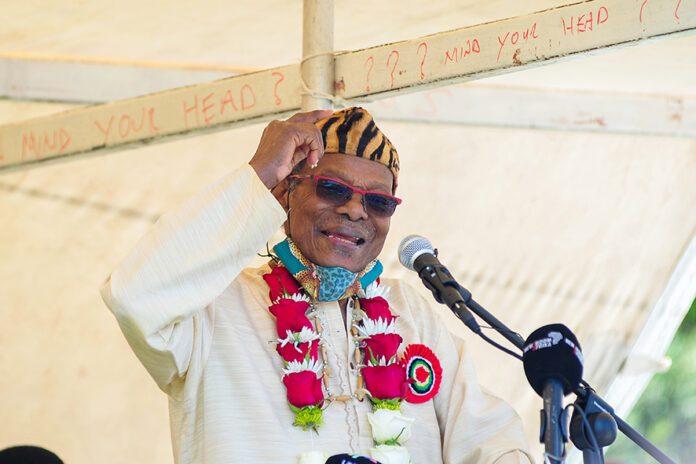Misunderstood is the one word most often used by sympathisers to describe the late IFP president, Prince Mangosuthu Buthelezi.
In the 90s, when some of us first heard of the KwaZulu-Natal Chief Minister, it was through a struggle song warning that he was an apartheid sellout and the ANC’s uMkhonto we Sizwe combatants would come for him.
Our instant worldview then was that Prince Buthelezi belonged to the same WhatsApp group as other homeland leaders such as ours back then in Bophuthatswana, Lucas Mangope.
But academic Professor Henning Melber challenges this notion in the article titled, Mangosuthu Gatsha Buthelezi: a reappraisal of his fight against apartheid.
Melber notes that at least two PhD theses provided new insights challenging the notion that Buthelezi could be reduced to a puppet of the minority apartheid regime and a sellout.
He disagreed that Prince Buthelezi could be mentioned in the same breath as some of the most notorious Bantustan leaders, citing as examples Transkei’s Chief Kaiser Matanzima or Mangope.
It would be wrong, according to Melber, who placed Prince Buthelezi more in the league of Ciskei’s former homeland leader, General Bantu Holomisa.
He pointed out that both leaders, at least, refused to accept the fake independence of their homelands that the apartheid regime offered.
In a 1994 article titled, A Crossroad In South African History And Western Policies Towards South Africa, Buthelezi predicts that future historical analysis will properly uncover the role that his IFP played in the unfolding events of South Africa’s democratic transition.
He contended that a more accurate and detached historical account of the events of the democratic transition will most likely reveal that both the ANC’s armed struggle and international sanctions were ineffective with respect to the formal dismantling of apartheid.
“In this respect, it can merely be mentioned that if the Zulu nation and I, as Chief Minister of KwaZulu, had accepted independence as the Tswana, the Xhosa, and the Venda nations did, the tricameral system established with the 1983 Constitution would have had a good chance of working,” wrote Buthelezi.
He continued: “In fact, had 9-million Zulus been deprived of their South African citizenship to become part of an independent country, the world would have not been in the same position in voicing the statement that in South Africa a minority was ruling over a disenfranchised majority.”
But two University of KwaZulu-Natal academics, Laurence Piper and Kerri Hampton, made an observation that rather than shaping post-democratic South Africa, the transition actually shaped the politics of both Prince Buthelezi and the IFP.
In their article, the academic duo argued that since 1994, but especially since 1996, the IFP had progressively moved away from the Zulu nationalist rhetoric and confrontational tactics of the transition period, then termed the ‘militant Zulu nationalist’ strategy.
The article submits that the reasons for the observed adaptation were not to be found in changed political objectives, citing, for example, that the IFP remained committed to provincial autonomy, but rather in changed political and institutional conditions.
The authors argued that after the completion of the KwaZulu-Natal constitution-making process in 1996, both the ANC and the IFP seemed to be finding each other, especially in the form of the state and the process towards it.
But, according to the paper, new political developments such as the “defection” of the Zulu king, and new institutional conditions such as a stake in democracy and the return of law and order, have made the strategy of “militant Zulu nationalism” redundant, even counter-productive.
“To some extent, this has been replaced by a conservative-liberal ideology and more cooperative tactics, but it has also heightened internal divisions and exposed a sense of directionlessness symptomatic of an identity crisis,” the article argued.
If their theory is correct, then post-apartheid South Africa shaped the worldview of Prince Buthelezi and the IFP in the same way that the leader and the party contributed to the transition. Therefore, Prince Buthelezi’s politics would have undergone some form of transformation over time.
This would make it difficult for critics to squarely fit him in the sellout bracket, just as devotees would want him to be a blemish-free elderly statesman.
In 2017, when Prince Buthelezi stepped down as IFP leader and from active politics, General Holomisa praised him, saying that he had over the years distinguished himself as a statesman in his own right.
He said Prince Buthelezi’s political life taught him that to be a formidable leader, you must never shy away from your responsibility to the nation in exchange for empty populist slogans.
“Prince Buthelezi is now handing over the responsibility of leadership to a younger generation. The global political landscape is attracting ever-increasing attention from youth. Leaders should mould younger future leaders to carry the values of a nation and to be able to engage fully with grassroots level issues”.
Holomisa repeated the same sentiments on the occasion of the opening of the IFP leader’s museum and documentation centre in August 2015.
”You have lived a life that indeed should be shared with the present and future generations … Today, I join others in confirming and appreciating the role you, as an individual, continue to play in building our democracy. I am excited in knowing that this contribution will not disappear but will be kept in this museum for consumption by all.”
Follow @SundayWorldZA on Twitter and @sundayworldza on Instagram, or like our Facebook Page, Sunday World, by clicking here for the latest breaking news in South Africa.



